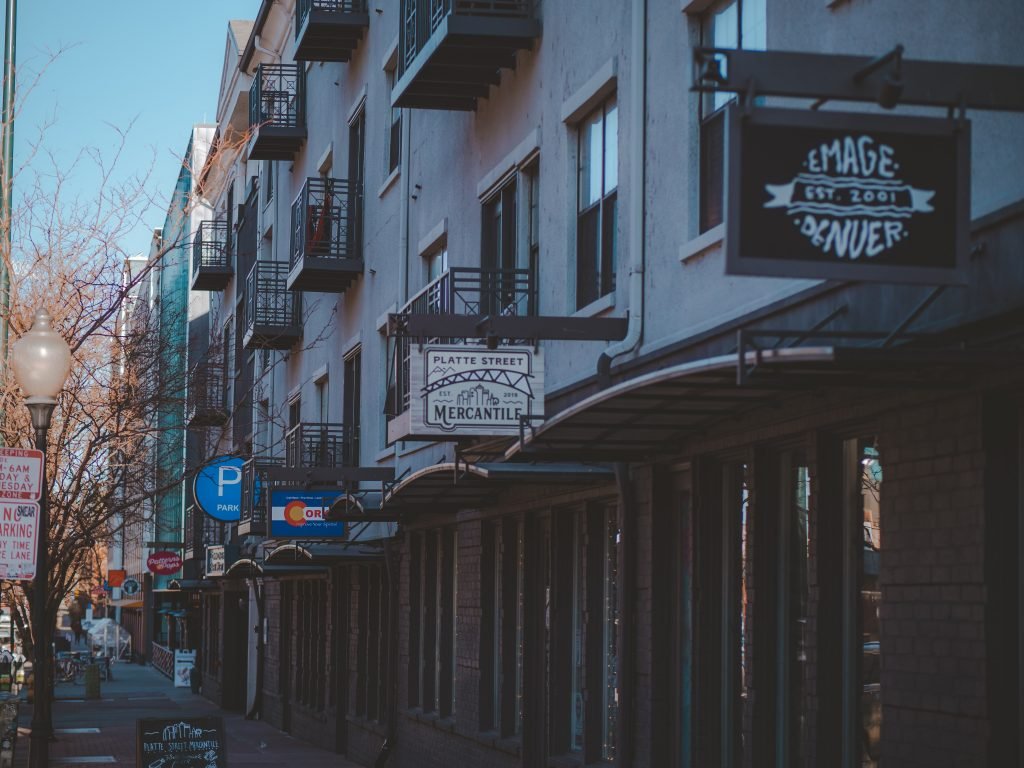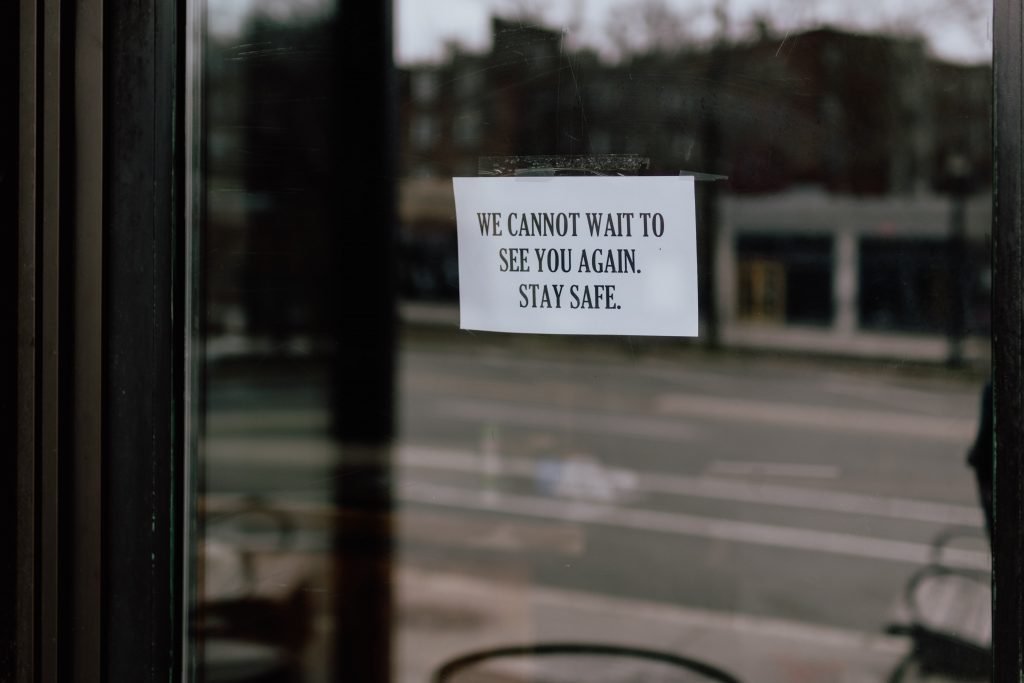Small businesses add so much to the community- they are often more personable, communicative, charming, and flexible. With various regulations to prevent transmission of Covid-19 in place around the country, it is no surprise that small businesses have struggled as customers increasingly turn to the convenience that larger companies like Uber Eats, Amazon, and Door Dash offer. Rather than turning to corporate America, now is the time to support small businesses and elevate their voices. We sought to do just that by designing a survey that was sent out to small businesses in the local community; our results are interesting.
Several small businesses have taken time in quarantine to expand their social media presence. Of the 26 businesses surveyed, Nearly a third of companies added at least one social media platform. The most commonly added social media platforms were Pinterest and TikTok, which comes as no surprise given the rising popularity of both throughout lockdowns. Another interesting finding was that of the companies that added a new social media platform, nearly all of them were in the Retail or E-Commerce space. Sajid Islam, President of Market & Grow, explains this association: “Traditionally, retail stores rely heavily on foot traffic. Now that the actual storefront is closed, businesses need to find a new way to attract customers. Because everyone was home, everyone was on social media. That explains why certain businesses expanded [their social media presence].”
When questioned about the success of business compared to pre-pandemic, answers were not nearly as uniform as we expected. Out of the 26 that responded to our survey, 9 rated business as “worse” and such businesses were in the food, hospitality, fine art, and fitness industries. 10 rated business as “better” and such businesses were in the sectors of E-commerce, retail, and technology. 5 rated business as the “same” and 2 rated business as “it depends”. When asked about why he believed some businesses were doing better than others, Sajid discussed how traditionally in-person industries, such as food, hospitality, and fitness, are particularly negatively impacted because, in his words, “although virtual adaptations have been made, they are not quite as successful or revenue-generating as the in-person version.”

We also asked businesses to indicate how much money they are spending on marketing now compared to before Covid-19. Nearly twenty percent of respondents stated that they spend “more” on marketing now, fifteen percent spend “less”, another twenty percent said they don’t spend any money, and almost forty percent denoted that they spend the “same”. Of the 5 who reported that they spend “more” on marketing, 4 reported that business was “better”. While we cannot draw any definitive conclusions based on the small size of our sample, this discovery reveals important information on how increasing spending on marketing can enable business success. As Sajid notes: “Marketing is building demand. Spending money on marketing enables your brand to show up in front of people who have a need [for the product or service]… Marketing spending is imperative… Of course, you have to do the correct marketing. You have to show the people the right things, which will generate more sales. Marketing will absolutely help, including content and advertising, not just social media… You have to be in front of your target audience all times, because if not, your competitors will be.”
Although spending money on marketing is important, our survey revealed that many small businesses were able to build a significant social media presence without spending a cent. On this, Sajid explained that “There are entrepreneurs who are very good at building a following or movement because they have very cool stories. They start with a good product and have a face who is outgoing, down-to-earth, relatable, and genuine… this creates a natural following base. Everyone can try to do this, but only a select few will succeed. Businesses like this are the exception, not the norm. This is why not spending money [on marketing] can be a slippery slope. If you are just a random brand with nothing that stands out, [succeeding without spending money on marketing] will be a struggle”.
On the survey, businesses described a wide range of tactics that they employed to adapt to the pandemic. Among such alterations we saw creativity, innovation, open-mindedness, and resilience as small business owners adapted by adding new products, adding new services, shifting their business model, and changing their marketing schemes in order to best suit community needs. Of the seven businesses that reported adding a new product, many in the food, alcohol, and hospitality industries tried a variety of ways to adapt, such as adding more take-home, delivery, and pickup options; offering dinner trays; bundling menu items; and developing new menu items. Six businesses reported generating a new service; some of the more innovative adaptations were establishing a rewards program, adding zoom classes, adding live Facebook events, and adding virtual pairing events, such as the virtual donut and beer pairing event one local eatery discussed. Sajid noted that of the ideas presented by small businesses, he thought the addition of dinner trays and virtual pairing events were extremely creative. Adding onto the dinner tray idea, Sajid suggested “it would be cool to expand upon this and make it a mystery chef’s special subscription service, either pickup or delivery, a few times a month. People are tired of picking out what they have to eat at this point!”

Thirteen businesses described how they have altered their business model in order to suit the demands of consumers in a Covid-19 world. Of the ones that stuck out were changing in person programming to be completely virtual; adding an e-commerce component; moving to QR code and Kiosk ordering; moving to new production facilities; changing from a wholesale model to directly selling to consumers; and altering supply chains. From all of these significant changes, it is clear that small businesses are doing their best to adapt in the face of adverse circumstances, not only for their own needs but also to suit the demands of their customers. Of the significant number of respondents who explained that Covid-19 pushed them to transition to E-Commerce, Sajid remarked: “Covid-19 has fast-tracked the transformation to [E-Commerce and] the digital industry… no one will go back… [Covid-19] has helped people accept the transition to the digital age… People have adjusted to the convenience [and] will realize you no longer need a storefront to be successful”.
Six companies reported a transition in marketing tactics in order to keep up with the dynamic nature of life during a pandemic. Many businesses indicated they are generating more content in general, increasing email marketing, posting more engaging stories, repurposing old posts, and increasing advertising spending on social media platforms. Denoting potential future trends, Sajid remarked that the “…hybrid-digital model of some in-person, some virtual, is here to stay.” Overall, this data reveals interesting findings and trends among small businesses in the DC-metro area related to Covid-19. Whether you are a single vagabond, a member of a bustling family, or a long-time District member who is here to stay, now is the time to shop small and support local businesses.
